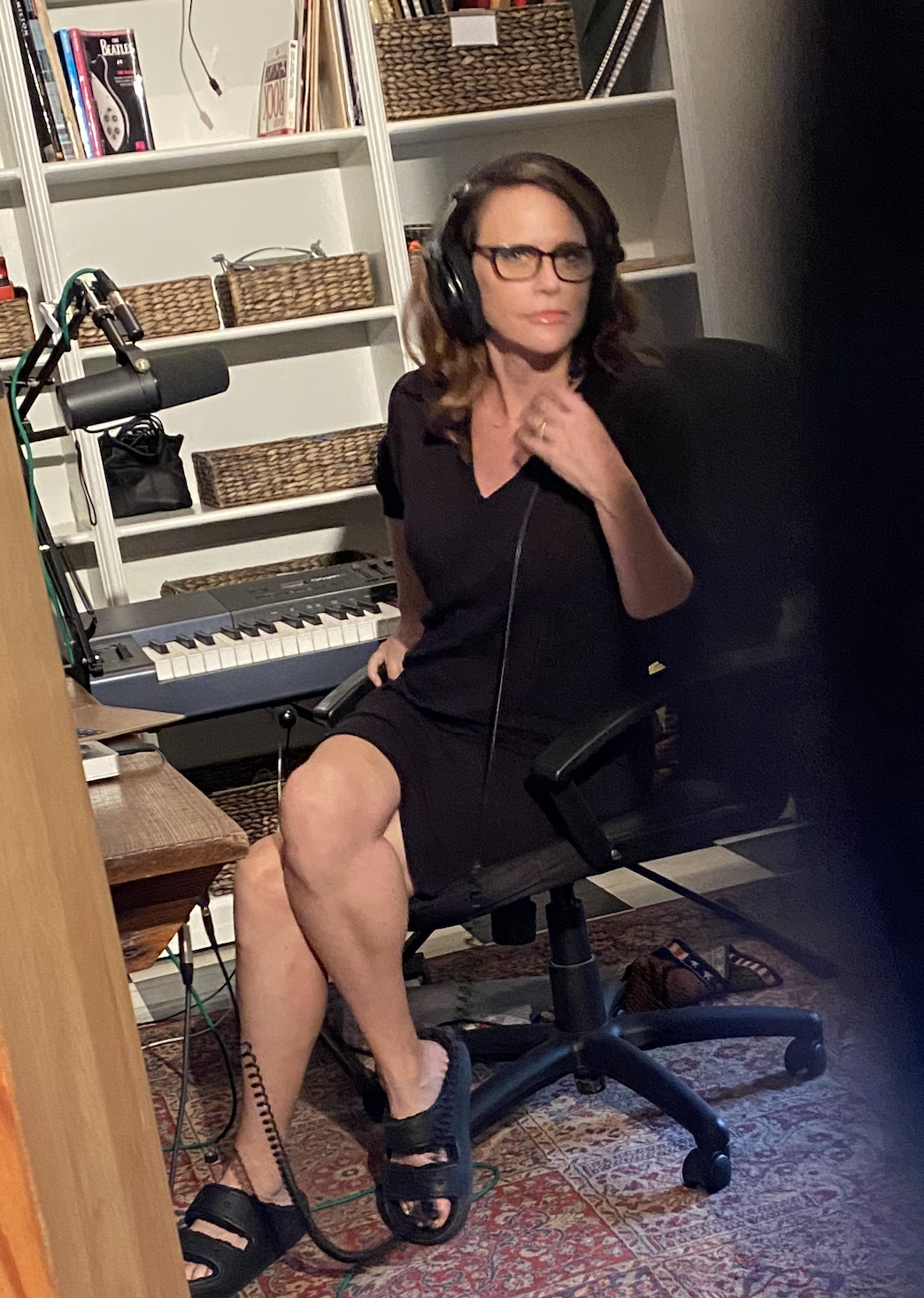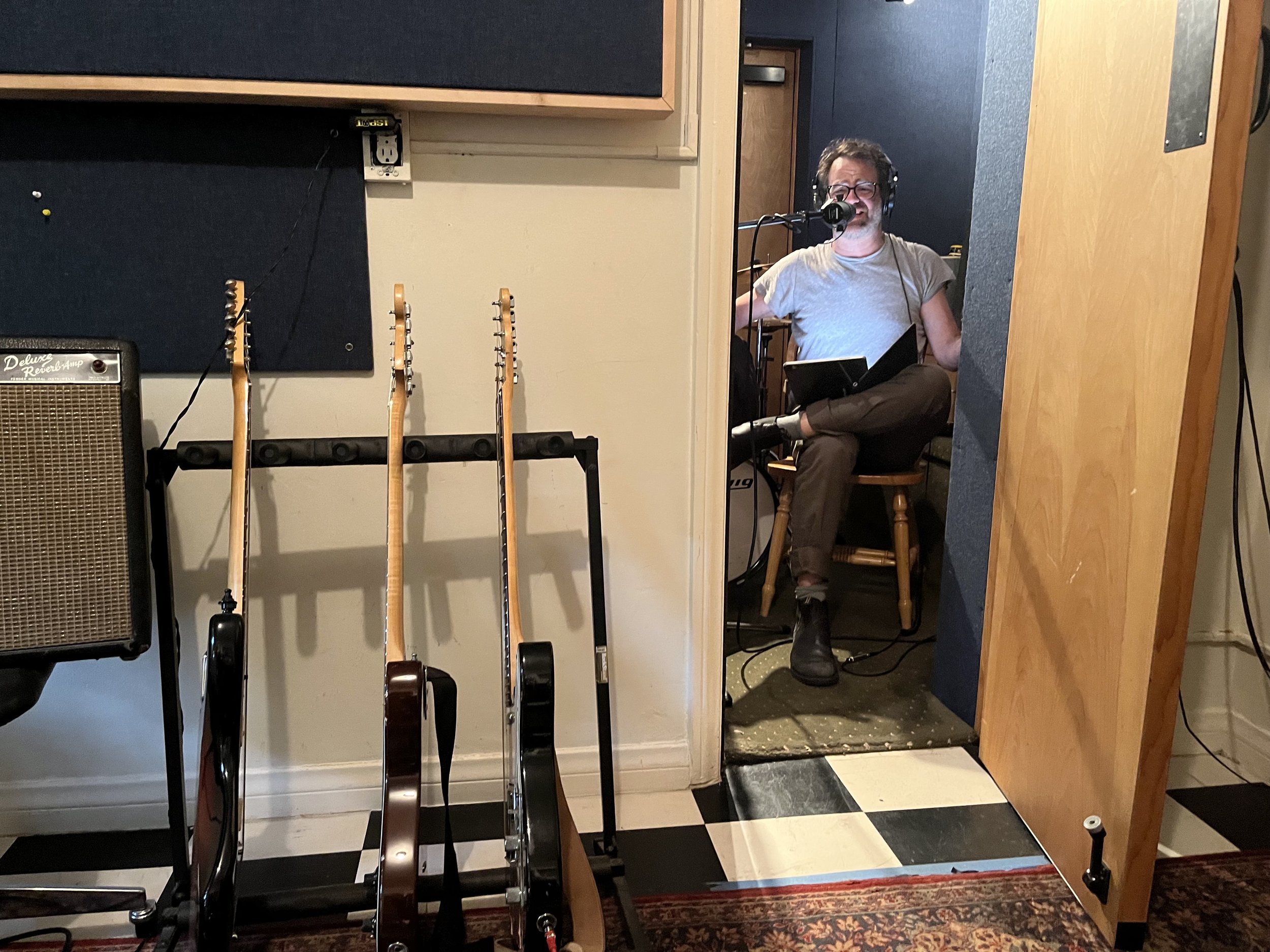Episode 5
”Peanut”
subscribe to our mailing list for more updates






Sometimes, a marriage ends when two people look at the same thing and come up with two different definitions. At the point where we enter the story in “Peanut”, Viveca and Robert are at a total impasse. Are they “taking some time” or are they already through? Are they going to go back to therapy, or are they going to call in the lawyers? Is Robert devastated or furious? Is Viveca sympathetic or disgusted?
Can’t they be both?
When they get the missile alert, they immediately fall into the kind of synchronous Emergency Mode that any long-standing partnership deploys unconsciously: you get the food, I’ll get clothes, meet you in the basement. Sometimes when things are chaotic, it’s easiest to just fall into your old patterns and just tell yourself I’ll figure the rest of it out later. Which is fine until Viveca steps on Little Ducky and they realize that they have a mission: They have to rescue Peanut. I picture Viveca and Robert running through the streets of a rapidly spiraling Chicago, sprinting headlong into impending disaster without really questioning why. It’s just… what you do. And that’s what it’s like in bad relationships sometimes (So I’m told anyway. My marriage is perfect, back off.)
Amy Landecker and Paul Adelstein are not just funny and charming and endearing. They are also my old classmates - I met Amy in 7th grade and Paul in 9th. We did high school plays together and ate fries with gravy at the Belden and maybe played quarters at any number of illicit teenage parties. It’s been a thrill watching them each grow into being as thoughtful and skilled as any actors anywhere. Obviously they have incredible chemistry - you can hear them bounce off each other, rising and falling with each turn in the story, like two old friends who know exactly when the other person needs love and when they need to be called on their bullshit. If you enjoy listening to them bicker half as much as I do, then we’ve done well.
**Spoiler Alert**
Credit where it’s due: maybe the best idea in the script is Paul’s. We were talking through the story during an early draft, and he reminded me of a mutual friend whose family had lost their dog when she was little. Their dad called from the shelter saying he’d been found and he was bringing him home… except when he got there, it wasn’t their dog. It was some other dog that sort of looked like their dog.
As a screenwriter, you have a moral obligation to pick up found money.
**One last thing**
A couple of summers ago, the ice cream truck that frequented my neighborhood would drive by every day playing the One True Ice Cream Truck Song, “Turkey In The Straw”. But either the tape had been left in the sun or the player was broken or something because it came out insanely warped, speeding up, slowing down, the pitch all over the place. It’s one of the greatest wild audio experiences of my life, and thanks to Bryen for sticking it in here for posterity.
Notes on the music for “Peanut”
For Peanut, I wanted to write a score that conveyed the manic tone of the episode but still nudged the feeling into more “this is funny” than “these people are so annoying”. It’s sort of alchemy to try and make music that doesn’t tell the audience what to feel but gives them an indication of the tone the director is trying to set.
For the main theme, I came up with this two-handed piano part loosely representing the two characters - sometimes they’re in sync, sometimes they’re dissonant. And as I am a man of modest ability, I had to play each half separately - but that let me really lean into the feel, let it become a bit harsh, occasionally smashing a couple of notes together, giving it the texture of the conversation it’s setting up.
And then for the second cue (when they’re getting in the car), I expanded the theme a bit to make it more explicitly melodic, the right hand following Viveca’s emotional spiral into the stratosphere.
For the underscoring of them running through the rain, carrying the dog, desperate to beat the missiles home, I tried to conjure the most “Action Movie” jam I could muster. Joel Schumacher, you know where to find me.
The end theme is the resolution of the main theme - a subdued and harmonious piano piece (the two hands are now totally in sync) that’s sort of resigned - almost romantic, but romantic in a way that’s more nostalgic for a thing that’s gone than hopeful for any kind of future. (Billy Strayhorn, no one will ever confuse us.)


